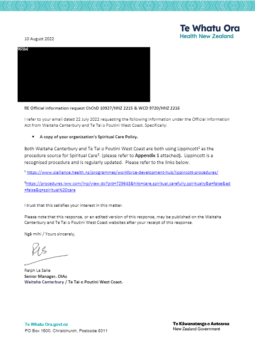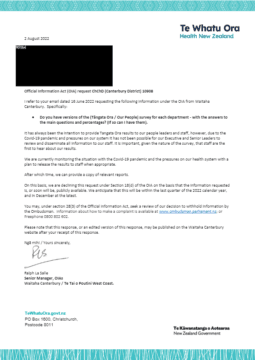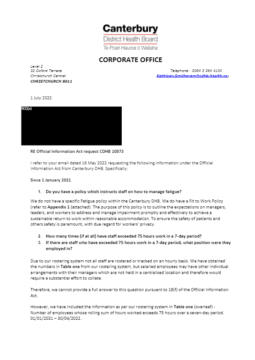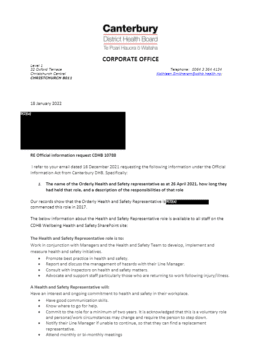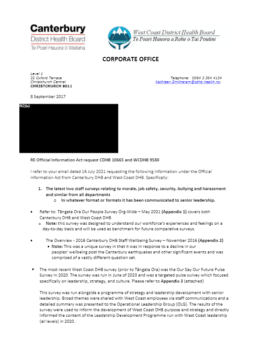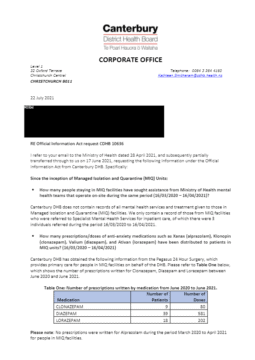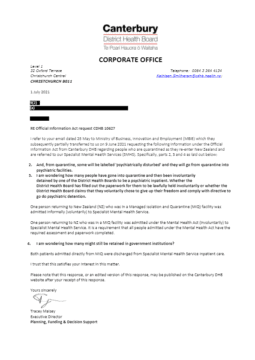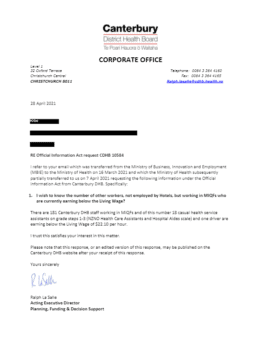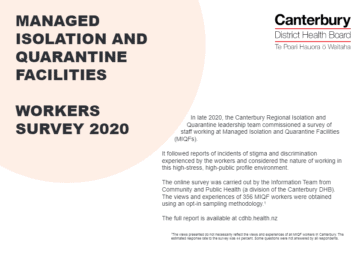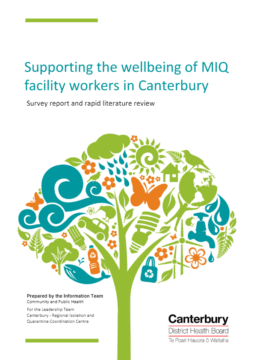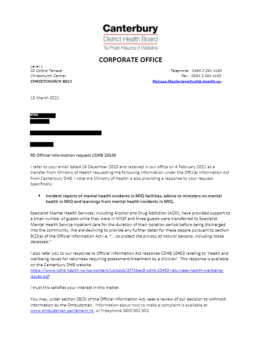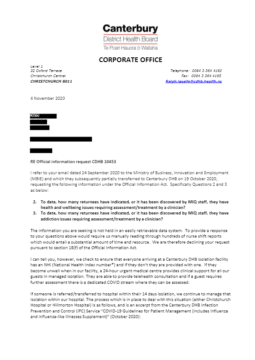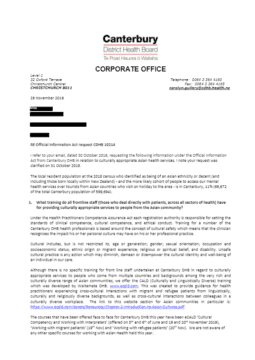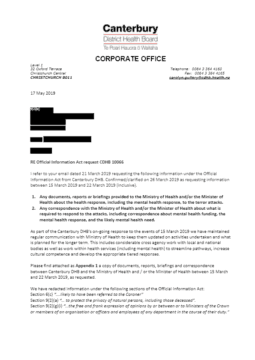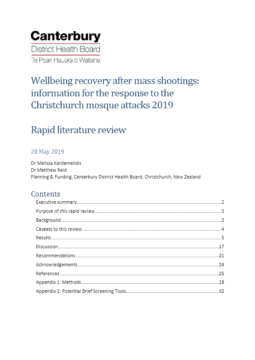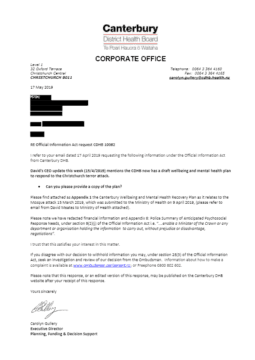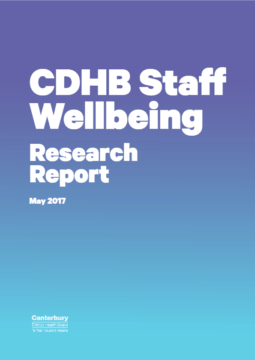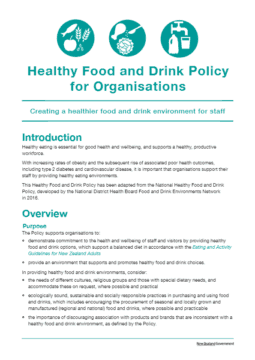Background
The Information Team at Community and Public Health (the public health division of the Canterbury District Health Board), was approached by the Canterbury Regional Isolation and Quarantine (C-RIQ) leadership who were concerned by incidents of stigma and discrimination being reported to them by staff working within the Canterbury Managed Isolation and Quarantine facilities (MIQF). In order to inform next steps by the C-RIQ leadership in supporting their workforce, a rapid literature review and a survey of Canterbury MIQF staff was undertaken in late 2020.
Literature Review
To date, little or no research has been applied to understanding any work-related wellbeing impacts for individual MIQF workers, their whānau, and their communities, as well as any implications for life outside-of-work. The most closely related literature is focused on healthcare and other front-line workers’ experiences within in-patient contexts, for other viral diseases such as HIV, EBOLA, MERS, SARS (although the COVID-19 literature is emerging).
In a high-stress situation, such as a pandemic response, distorted disease perception, misinformation, and fear can trigger reactions from individuals and groups that can disproportionately affect front-line workers (and their significant others) and lead to negative psychosocial outcomes. Stigma and discrimination directed towards front-line healthcare workers have been well documented across several previous viral epidemics including HIV, EBOLA, MERS, SARS, and currently COVID-19, where they have been shown to be strongly associated with low staff motivation, poor staff retention, low morale, reduced psychological wellbeing, and in some cases anxiety and depression.
The applicability of the literature review findings to COVID-19 MIQ facilities in New Zealand needs to be considered in light of the differences in illness severity and the nature of the settings studied in the literature. Despite these differences, previous epidemics and settings share many common elements, and many of the studies propose strategies that might be applied in the context of New Zealand’s MIQ facilities.
You can also read the MIQ facility workers survey summary
Tags CoronavirusCOVID-19Managed isolationMIQsPandemicStaffWellbeing
More informationDownload pdf (1MB)

